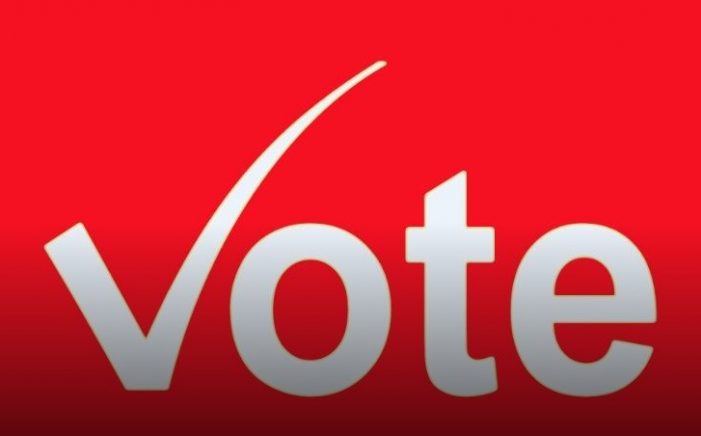There are six constitutional amendments on the November 3 ballot. An amendment passes when it receives 60-percent approval from voters. Here’s a breakdown of each one.
AMENDMENT 1: Citizenship Requirement to Vote in Florida Elections
This amendment changes one word of the state constitution regarding who can vote in the state.
A “yes” vote supports amending the Florida Constitution to state that “only a citizen” of the U.S. who is 18 years old or older can vote in Florida.
A “no’ vote opposes amending the Florida Constitution, which would keep the existing language that says “every citizen” of the U.S. who is 18 years old or older can vote in Florida.
This change doesn’t have any legal impact because it is already the law in Florida that only U.S. citizens can vote.
AMENDMENT 2: Raising Florida’s Minimum Wage
This amendment would gradually raise the minimum wage in Florida from $ 8.56 per hour to $15 per hour by 2026. If passed, the minimum wage would increase to $10 on Sept. 30, 2021 and increase $1 a year thereafter until it reached $15 in 2026, with standard of living increases resuming in 2027.
A “yes” vote supports the initiative to increase the state’s minimum wage incrementally until reaching $15 per hour in September 2026.
A “no” vote opposes the initiative to increase the state’s minimum wage incrementally until reaching $15 in September 2026, thereby keeping the current minimum wage of $8.46 per hour.
AMENDMENT 3: All Voters Vote in Primary Elections for State Legislature, Governor, and Cabinet
This amendment would make Florida an open primary state in the races for Governor, State Cabinet and State Legislature. Currently, voters in Florida can only vote in a primary if you are registered with a political party and you can only vote in that party’s primary. If this amendment passes, all registered Florida voters, including those without party affiliation, could vote in a primary and all candidates would be on the same ballot. The two highest vote-getters would advance to the general election, regardless of party affiliation. If only two candidates qualify, no primary is held and winner is determined in general election.
This “open primary” system is also known as a “jungle primary.” It could potentially mean that two Democrats or two Republicans face each other in the general election.
A “yes” vote supports establishing a top-two open primary system for primary elections for state legislators, the governor, and cabinet (attorney general, chief financial officer, and commissioner of agriculture) in Florida.
A “no” vote opposes establishing a top-two open primary system for primary elections, thereby leaving in place Florida’s current system where closed primaries are held by each party.
AMENDMENT 4: Voter Approval of Constitutional Amendments
This amendment requires constitutional amendments to be approved by 60% of Florida voters twice, during successive general elections. Currently, amendments must be approved once.
A “yes” vote supports requiring voter-approved constitutional amendments to be approved by voters at a second general election to become effective.
A “no” vote opposes requiring voter-approved constitutional amendments to be approved by voters at a second general election to become effective.
AMENDMENT 5: Limitation on Homestead Assessments
Amendment 5 extends the amount of time homeowners may transfer their “Save Our Homes” tax benefits from a prior home to a new home.
Currently, the state Constitution gives a homeowner two years to transfer the benefits, which range from $25,000 to $50,000 in homestead exemptions, over to their new “homestead.” Amendment 5 would extend that period from two years to three years.
A “yes” vote supports extending the period during which a person may transfer Save Our Homes benefits to a new homestead property from two years to three years.
A “no” vote opposes extending the period during which a person may transfer Save Our Homes benefits to a new homestead property from two years to three years.
AMENDMENT 6: Ad Valorem Tax Discount for Spouses of Certain Deceased Veterans Who Had Permanent, Combat-Related Disabilities
Amendment 6 would transfer Homestead Property Tax discounts for veterans with permanent combat-related disabilities to their surviving spouse. The discount would remain in effect until the spouse remarries, dies or sells or disposes of the property. Currently, that discount expires upon the veteran’s death.
A “yes” vote supports allowing a homestead property tax discount to be transferred to the surviving spouse of a deceased veteran.
A “no” vote opposes allowing a homestead property tax discount to be transferred to the surviving spouse of a deceased veteran.


Duh yes on 1. No to the rest. We need lower tax rates for everyone ,not more exemptions for some. Keep it simple.
My first thought is always that someone or group with a lot of money paid one of the organizations to collect the votes so I ask, who’s pocket will this really line? Second thought is that it’s probably worded to say the opposite of what it actually means or that it’s true purpose is hidden. Third and final; if it’s truly a grassroots voter initiative, the legislature will find a way around it or in some way undo it. My faith in our system is at an all time low and unfortunately seems to be dropping from here, Default is always no but I’ll throw in a yes if I just can’t find the deception and suspect it actually is a grassroots amendment and means what it appears to say! Sadly.
No, No, Yes on the rest.
6 amendments?
Well I’ll just follow my standard process:
NO-NO-NO-NO-NO-NO.
Dont forget to vote NO on number 7 also! The CSC
Good lookin out Vern I’d just like to add:
Dont forget to vote no on #8 as well.
CSC is last on the ballot but not a Constitutional Amendment and it surely gets a NO. Pretty sure you knew that.